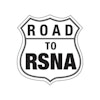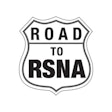Sunday, November 26 | 11 a.m.-11:10 a.m. | S2-SSBR01-4 | Room S401
In this session, researchers will demonstrate how diffusion-weighted imaging MRI (DWI-MRI) could be a useful supplemental screening tool in breast imaging.
In her presentation, Hee Jung Shin, MD, from Asan Medical Center in Seoul, South Korea will talk about her team’s findings, which showed that DWI-MRI outperformed breast ultrasound in supplemental screening.
There is growing interest in using unenhanced MRI screening for breast cancer, stemming from concerns over the use of gadolinium-based contrast agents and the high cost of contrast-enhanced MRI. In their study, Shin and colleagues wanted to investigate outcomes from the first year of enrollment in the Diffusion-Weighted Magnetic Resonance Imaging Screening Trial (DWIST).
The team found in its analysis of 1,046 women that DWI-MRI had an overall cancer detection rate of 74.4%, higher than mammography (43.6%) and ultrasound (59%), but lower than that of DCE-MRI (92.3%). DWI-MRI had an 82.1% detection rate for invasive cancer, outperforming mammography (53.6%) and ultrasound (67.9%) again, but not DCE-MRI (92.9%). The same trend went for cancer detection rates for in situ cancer.
Finally, the team reported that the cancer detection rate of combined mammography and DWI-MRI was 85.7% for invasive cancer and 63.6% for in situ cancer. The group suggested that based on these findings, DWI-MRI is expected to have an increased role in supplemental breast screening.
Attend this session to hear more about what the team found.

